Antioxidants are compounds that can help protect the skin from damage caused by free radicals, which are unstable molecules that can damage cells and contribute to aging and disease. Here are seven top antioxidants for healthy skin:
-
Vitamin C: This antioxidant is known for its ability to brighten the skin and protect it from free radicals. It can also help stimulate collagen production, which can improve the appearance of fine lines and wrinkles.
-
Vitamin E: Another powerful antioxidant, vitamin E can help protect the skin from sun damage and environmental stressors. It can also help moisturize the skin and reduce the appearance of scars.
-
Green tea: This antioxidant-rich beverage contains catechins, which can help protect the skin from UV damage and reduce inflammation. Green tea can also help improve the skin's elasticity and firmness.
-
Resveratrol: Found in grapes, red wine, and berries, resveratrol is a potent antioxidant that can help protect the skin from sun damage and improve its overall health.
-
Coenzyme Q10: This antioxidant can help protect the skin from free radicals and improve its texture and tone. It may also help reduce the appearance of fine lines and wrinkles.
-
Retinol: A derivative of vitamin A, retinol is a powerful antioxidant that can help improve the skin's texture and tone. It can also help reduce the appearance of fine lines and wrinkles.
-
Curcumin: Found in turmeric, curcumin is a potent antioxidant that can help protect the skin from damage caused by UV radiation. It can also help reduce inflammation and improve the skin's overall health.
What antioxidants do for your skin
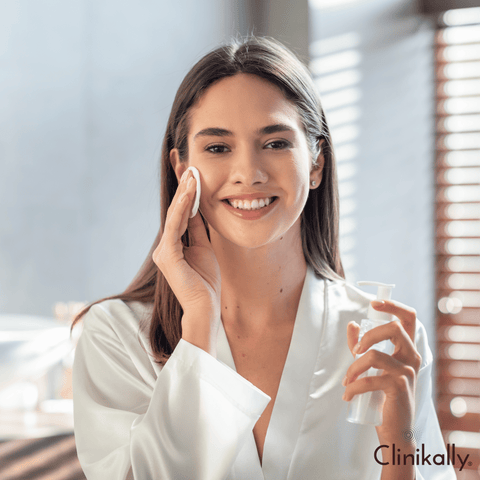
Antioxidants can offer a variety of benefits for the skin, including:
-
Protecting against oxidative stress: Antioxidants can neutralize free radicals, which are unstable molecules that can damage cells and contribute to aging and other skin problems.
-
Reducing inflammation: Antioxidants can help reduce inflammation in the skin, which can reduce redness and irritation.
-
Improving skin texture: Antioxidants can help promote healthy collagen production, which can improve the texture and firmness of the skin.
-
Brightening the complexion: Antioxidants can help reduce the appearance of dark spots and hyperpigmentation, giving the skin a brighter, more even tone.
-
Protecting against sun damage: Antioxidants can offer some protection against the harmful effects of UV radiation, which can contribute to premature aging and skin cancer.
Some common antioxidants used in skin care products include vitamin C, vitamin E, green tea, resveratrol, and coenzyme Q10. These ingredients can be found in a variety of skincare products, including serums, moisturizers, and sunscreens.
7 antioxidants for skin
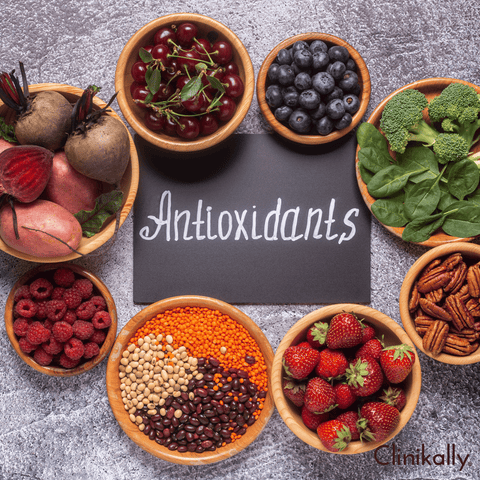
Antioxidants can help protect the skin from free radical damage, which can cause premature aging and other skin concerns. Here are 7 antioxidants that are beneficial for the skin:
-
Vitamin C - A potent antioxidant that helps brighten the skin and improve its texture, vitamin C also helps boost collagen production and can help reduce the appearance of fine lines and wrinkles.
-
Vitamin E - Another powerful antioxidant, vitamin E helps protect the skin from environmental stressors and can help improve the skin's barrier function.
-
Resveratrol - Found in grapes and red wine, resveratrol is a potent antioxidant that helps protect the skin from UV damage and other environmental stressors.
-
Coenzyme Q10 - An antioxidant that occurs naturally in the body, coenzyme Q10 can help protect the skin from oxidative damage and improve its overall appearance.
-
Green Tea Extract - Rich in antioxidants called catechins, green tea extract can help protect the skin from UV damage and improve its overall health and appearance.
-
Ferulic Acid - A powerful antioxidant found in many plant-based foods, ferulic acid can help protect the skin from free radical damage and improve the effectiveness of other antioxidants.
-
Niacinamide - Also known as vitamin B3, niacinamide is an antioxidant that can help improve the skin's barrier function and reduce the appearance of fine lines and wrinkles. It also has anti-inflammatory properties that can help soothe and calm the skin.
Vitamin C

Vitamin C, also known as ascorbic acid, is a water-soluble vitamin that plays a crucial role in many biological processes in the body. It is an essential nutrient, which means that the body cannot produce it on its own and must obtain it from the diet or supplements.
Vitamin C is involved in the production of collagen, which is an important structural component of skin, bones, and other tissues. It also plays a role in the absorption of iron from plant-based foods, the functioning of the immune system, and the repair and maintenance of cartilage, bones, and teeth.
Vitamin C is found in many fruits and vegetables, including citrus fruits, strawberries, kiwi fruit, tomatoes, peppers, and broccoli. It is also available in supplement form, typically as ascorbic acid or a buffered form of vitamin C.
While vitamin C deficiency is rare in developed countries, it can lead to a condition known as scurvy, which is characterized by fatigue, weakness, and bleeding gums. Consuming adequate amounts of vitamin C is important for overall health and well-being.
Niacinamide
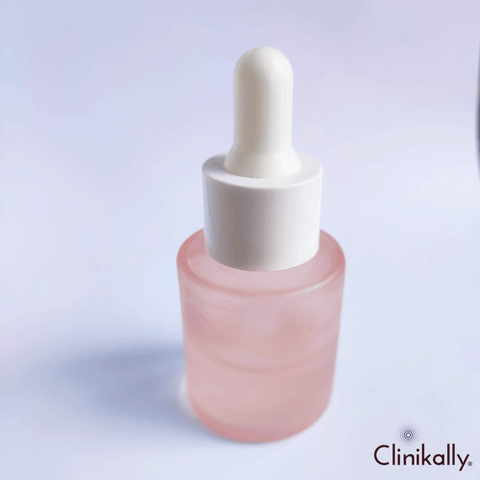
Niacinamide, also known as nicotinamide, is a form of vitamin B3. It is a water-soluble vitamin that plays an important role in many physiological processes in the body. Niacinamide is a precursor to a molecule called NAD+, which is involved in cellular metabolism and energy production.
Niacinamide has many potential health benefits. It has been shown to improve skin health by reducing inflammation, improving skin barrier function, and reducing the appearance of fine lines and wrinkles. It has also been studied for its potential effects on diabetes, arthritis, and other chronic health conditions.
Niacinamide is available in supplement form, but it is also found naturally in many foods, including meat, fish, and whole grains. It is generally considered safe at recommended doses, but high doses can cause side effects such as flushing, itching, and gastrointestinal upset. As with any supplement, it is important to consult with a healthcare provider before taking niacinamide.
Resveratrol

Resveratrol is a natural plant compound and a type of polyphenol that is found in various fruits, vegetables, and nuts, including grapes, blueberries, peanuts, and red wine. Resveratrol has been studied extensively for its potential health benefits, particularly for its antioxidant and anti-inflammatory properties.
Some studies suggest that resveratrol may have a protective effect against certain health conditions, including heart disease, cancer, and neurodegenerative diseases such as Alzheimer's and Parkinson's. Additionally, resveratrol may help regulate blood sugar levels and reduce inflammation, which could be beneficial for those with diabetes or other inflammatory conditions.
However, it is important to note that much of the research on resveratrol has been conducted in animals or in vitro, and more research is needed to determine its effects in humans. Additionally, the levels of resveratrol found in foods may not be sufficient to produce significant health benefits, and taking resveratrol supplements may not be appropriate for everyone.
It is always recommended to speak with a healthcare provider before starting any new supplement regimen, including resveratrol, to determine whether it is safe and appropriate for your individual needs.
Vitamin E
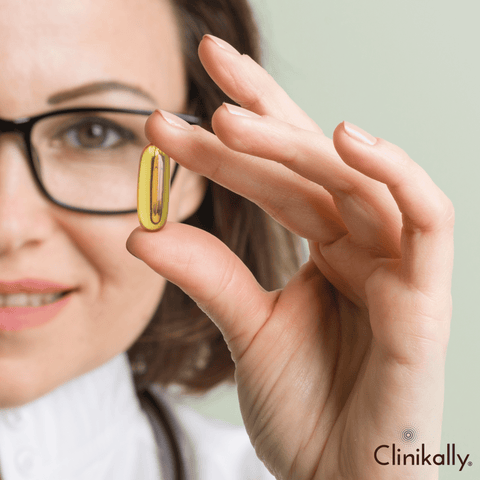
Vitamin E is a fat-soluble vitamin and an important antioxidant that helps to protect cells from damage caused by free radicals. Free radicals are unstable molecules that can damage cells and contribute to the development of chronic diseases such as heart disease, cancer, and Alzheimer's disease.
Vitamin E is found naturally in a variety of foods, including nuts, seeds, and vegetable oils. Some common food sources of vitamin E include almonds, sunflower seeds, hazelnuts, peanut butter, spinach, broccoli, and avocados.
Vitamin E is also available as a dietary supplement in the form of capsules, tablets, and oils. It is commonly used as an ingredient in skincare products due to its antioxidant properties.
The recommended daily intake of vitamin E for adults is 15 milligrams (22.4 IU) per day. However, high doses of vitamin E can have adverse effects, including an increased risk of bleeding, so it is important to follow the recommended dosage guidelines.
Retinol (Vitamin A)
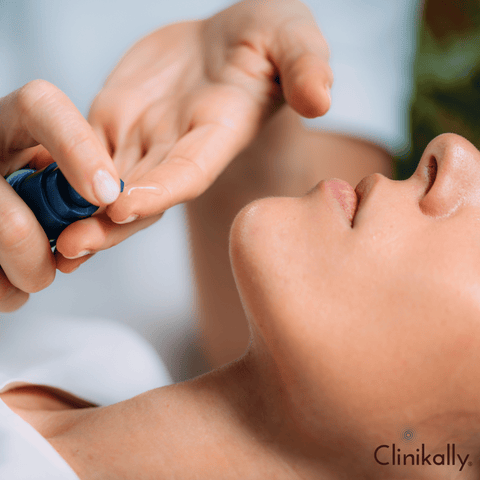
Retinol, also known as vitamin A, is a fat-soluble vitamin that is essential for maintaining healthy vision, skin, and immune function. It is found in animal-based foods, such as liver, eggs, and dairy products, as well as in some plant-based foods, such as sweet potatoes, carrots, and leafy greens. Retinol is also available in supplement form and is commonly added to skincare products.
Retinol plays a crucial role in vision by helping to convert light into nerve signals in the retina of the eye. It is also important for maintaining the health of the skin and mucous membranes and helps to boost the immune system by promoting the production of white blood cells.
However, it's important to note that excessive consumption of retinol, particularly in supplement form, can be toxic and lead to a variety of negative health effects, including liver damage and birth defects in pregnant women. It is generally recommended that adults get around 700 to 900 micrograms of retinol per day from food sources, and not exceed the upper limit of 3,000 micrograms per day from all sources.
Coenzyme Q10
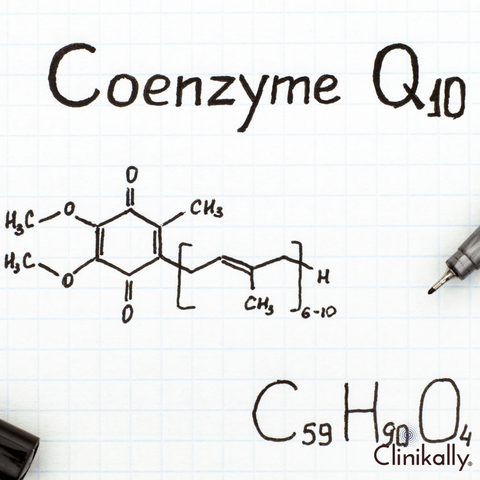
Coenzyme Q10, also known as ubiquinone, is a naturally occurring compound found in every cell in the human body. It plays a crucial role in producing energy in the form of ATP (adenosine triphosphate) by participating in the electron transport chain in mitochondria.
CoQ10 is a powerful antioxidant that helps protect cells from oxidative damage and is involved in various physiological functions, such as immune system regulation, blood pressure regulation, and cardiovascular health.
CoQ10 is found in high concentrations in organs with high energy requirements, such as the heart, liver, and kidneys. However, the body's production of CoQ10 declines with age, and certain medications such as statins, which are commonly prescribed to lower cholesterol levels, can also deplete CoQ10 levels.
CoQ10 supplements are available in various forms, including capsules, tablets, and soft gels. They are commonly used as a dietary supplement to support cardiovascular health, boost energy levels, and enhance exercise performance. Some studies suggest that CoQ10 supplements may also have a beneficial effect on certain medical conditions, such as migraine headaches, Parkinson's disease, and periodontal disease. However, more research is needed to confirm these potential benefits.
Polyphenols
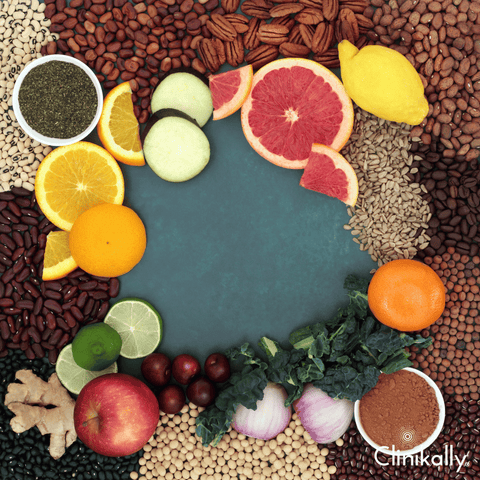
Polyphenols are a large and diverse group of compounds that are naturally present in plant-based foods, including fruits, vegetables, nuts, and grains. They are characterized by the presence of multiple phenol units and have been found to have various health benefits.
Polyphenols are known for their antioxidant properties, which means they can help protect the body from damage caused by harmful molecules called free radicals. They can also help reduce inflammation, which is linked to many chronic diseases such as heart disease, cancer, and diabetes.
There are several types of polyphenols, including flavonoids, phenolic acids, and stilbenes. Some examples of foods rich in polyphenols include green tea, berries, cocoa, red wine, and olive oil.
Research suggests that a diet rich in polyphenols may help lower the risk of chronic diseases and improve overall health. However, more research is needed to fully understand the potential health benefits of polyphenols and how they work in the body.
Best topical antioxidants for skin
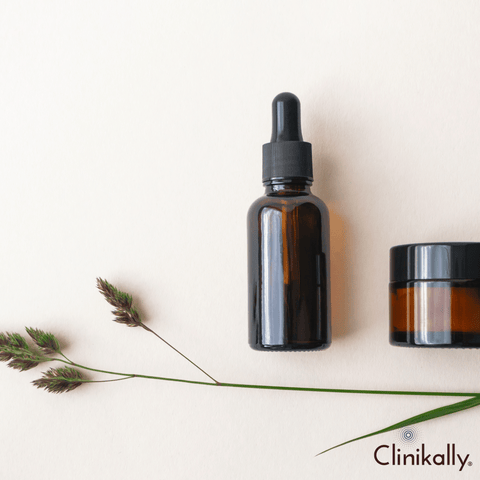
Topical antioxidants are beneficial for the skin as they can help to neutralize free radicals and prevent damage caused by environmental factors. Some of the best topical antioxidants for skin include:
-
Vitamin C: Vitamin C is a powerful antioxidant that can help to brighten the skin, reduce inflammation, and protect against UV damage. It can also help to stimulate collagen production, which can improve skin texture and firmness.
-
Vitamin E: Vitamin E is a potent antioxidant that can help to protect the skin from free radical damage and improve skin hydration. It is also effective at reducing the appearance of fine lines and wrinkles.
-
Green Tea: Green tea contains catechins, which are powerful antioxidants that can help to protect the skin from UV damage and reduce inflammation. It can also help to improve skin tone and texture.
-
Resveratrol: Resveratrol is a natural antioxidant that is found in red grapes and wine. It can help to reduce inflammation, protect against UV damage, and improve skin elasticity.
-
Coenzyme Q10: Coenzyme Q10 is a natural antioxidant that is found in the body. It can help to reduce the appearance of fine lines and wrinkles and improve skin hydration.
-
Ferulic Acid: Ferulic acid is a plant-based antioxidant that can help to protect the skin from UV damage and improve skin texture. It can also enhance the effectiveness of other antioxidants such as Vitamin C and E.
It is important to note that different antioxidants work best for different skin types and concerns. It is always best to consult with a skincare professional to determine which antioxidants are best for your skin type and concerns.
Antioxidant for skin whitening

Antioxidants are substances that can help protect the skin from damage caused by free radicals, which are unstable molecules that can harm cells in the body, including the skin. While there are some antioxidants that may have skin-lightening or brightening effects, it's important to note that skin whitening is a complex issue that may involve multiple factors, including genetics, sun exposure, and lifestyle habits.
Some antioxidants that may have skin-lightening or brightening effects include:
-
Vitamin C: This antioxidant has been shown to help reduce the appearance of dark spots and improve overall skin tone. It works by inhibiting the production of melanin, the pigment that gives skin its color.
-
Vitamin E: This antioxidant can help protect the skin from damage caused by UV radiation and other environmental stressors. It may also help improve the appearance of dark spots and discoloration.
-
Glutathione: This antioxidant is naturally produced by the body and has been shown to have skin-lightening effects. It works by inhibiting the production of melanin and can help improve overall skin tone.
-
Niacinamide: Also known as vitamin B3, this antioxidant can help reduce the appearance of dark spots and hyperpigmentation. It also has anti-inflammatory properties that can help improve the overall health and appearance of the skin.
It's important to note that while antioxidants can be beneficial for the skin, they should not be relied on as the sole solution for skin whitening. It's important to maintain a healthy lifestyle, use sunscreen, and consult with a dermatologist for personalized recommendations.
Antioxidant for ageing skin
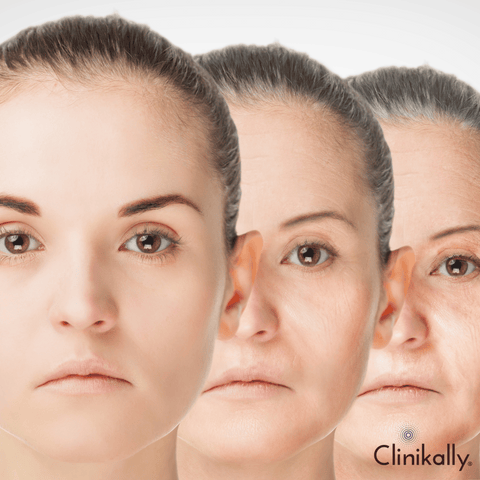
As we age, our skin undergoes several changes that can lead to the development of fine lines, wrinkles, and other signs of ageing. One way to combat these effects is by using antioxidants in skincare products.
Antioxidants are compounds that neutralize free radicals, which are unstable molecules that can damage cells and accelerate the ageing process. By neutralizing free radicals, antioxidants help to protect the skin from damage and support its natural repair processes.
Some of the best antioxidants for ageing skin include:
-
Vitamin C: This potent antioxidant helps to brighten the skin, fade dark spots, and stimulate collagen production, which can improve the appearance of fine lines and wrinkles.
-
Vitamin E: This antioxidant works in conjunction with vitamin C to protect the skin from free radical damage and support skin repair processes.
-
Retinol: This derivative of vitamin A can help to increase collagen production, reduce fine lines and wrinkles, and improve skin texture.
-
Coenzyme Q10: This antioxidant helps to protect the skin from free radical damage and support skin repair processes, making it a popular ingredient in anti-ageing skincare products.
-
Green tea extract: This antioxidant-rich ingredient can help to protect the skin from damage caused by UV radiation and environmental pollutants, which can contribute to the ageing process.
When looking for skincare products containing antioxidants, look for ingredients like vitamin C, vitamin E, retinol, coenzyme Q10, and green tea extract. It's also important to note that while antioxidants can be beneficial for the skin, they should be used in conjunction with a broad-spectrum sunscreen to protect the skin from UV damage, which is a primary contributor to the ageing process.
Antioxidant for acne
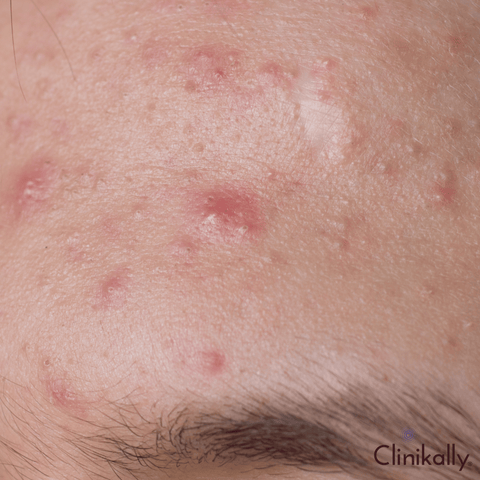
While there is no one-size-fits-all solution for acne, antioxidants can play a beneficial role in managing acne by reducing inflammation and protecting skin cells from damage. Here are some antioxidants that may be helpful for acne-prone skin:
-
Vitamin C: This antioxidant helps to reduce inflammation and redness caused by acne. It also helps to lighten hyperpigmentation left behind by acne scars.
-
Vitamin E: This antioxidant helps to protect skin cells from damage caused by free radicals, which can exacerbate acne. It also has anti-inflammatory properties.
-
Green Tea Extract: Green tea contains a powerful antioxidant called epigallocatechin gallate (EGCG) that has been shown to reduce inflammation and sebum production, which can help to prevent acne breakouts.
-
Resveratrol: This antioxidant is found in grapes, blueberries, and other fruits and has been shown to have anti-inflammatory properties that may be helpful for acne-prone skin.
-
Niacinamide: This form of vitamin B3 has been shown to reduce inflammation and sebum production in the skin, making it a useful ingredient for managing acne.
It's important to note that while antioxidants can be helpful for managing acne, they should be used in conjunction with other acne treatments and under the guidance of a dermatologist.
Antioxidant for sun protection
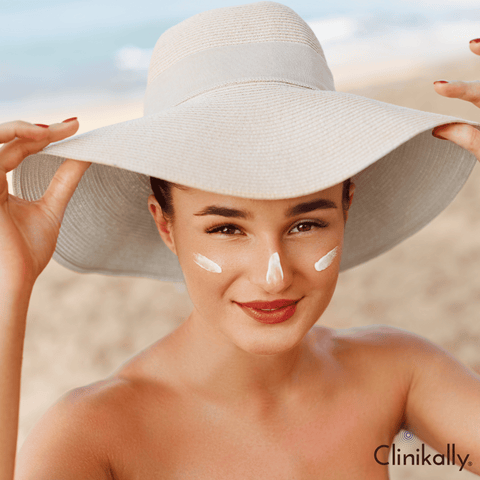
While antioxidants can offer some degree of protection against the harmful effects of sun exposure, they should not be relied upon as the sole method of sun protection.
Antioxidants work by neutralizing free radicals, which are unstable molecules that can damage cells and contribute to aging and disease. When skin is exposed to sunlight, free radicals are generated, which can cause damage to the skin's cells and DNA. Antioxidants can help to neutralize these free radicals, reducing the damage they cause.
However, sunscreen is still the most effective method of protecting your skin from the harmful effects of UV rays. Sunscreen works by creating a physical barrier between your skin and the sun, reflecting or absorbing the UV radiation before it can damage your skin cells.
So while incorporating antioxidant-rich foods and skincare products into your routine can certainly offer some degree of protection against sun damage, it's important to also use a broad-spectrum sunscreen with an SPF of 30 or higher and to seek shade during peak sun hours to protect your skin from the sun's harmful rays.
Takeaway: Repair damaged skin with potent antioxidants!
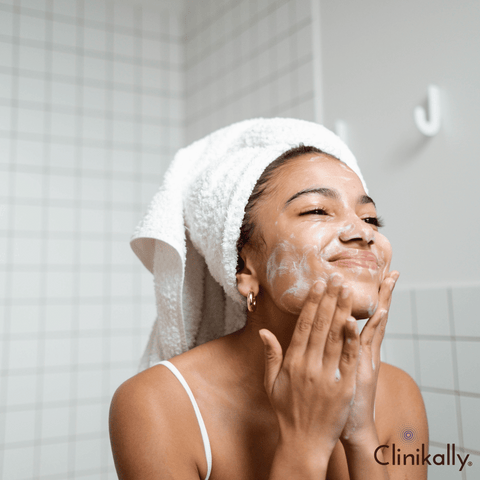
Potent antioxidants can be very effective in repairing damaged skin. Antioxidants help to protect the skin from damage caused by free radicals, which are unstable molecules that can damage cells and tissues. Free radicals are generated by factors such as UV radiation, pollution, and smoking. When they accumulate in the skin, they can cause oxidative stress, which can damage the skin's collagen and elastin fibres, leading to wrinkles, fine lines, and other signs of aging.
Potent antioxidants such as vitamin C, vitamin E, and coenzyme Q10 can neutralize free radicals and protect the skin from oxidative stress. They can also stimulate collagen production, which can help to restore the skin's elasticity and firmness. Additionally, antioxidants can help to brighten the skin, reduce inflammation, and improve the skin's texture and tone.
To get the most benefit from potent antioxidants, it's important to use skincare products that contain high-quality, stable forms of these ingredients. Look for products that are formulated with a high concentration of antioxidants and that have been tested for efficacy. You may also want to consider incorporating antioxidant-rich foods into your diet, such as berries, leafy greens, and nuts.
Overall, using potent antioxidants in your skincare routine can be a great way to repair and protect damaged skin. By neutralizing free radicals and supporting collagen production, antioxidants can help to improve the overall health and appearance of your skin.
















